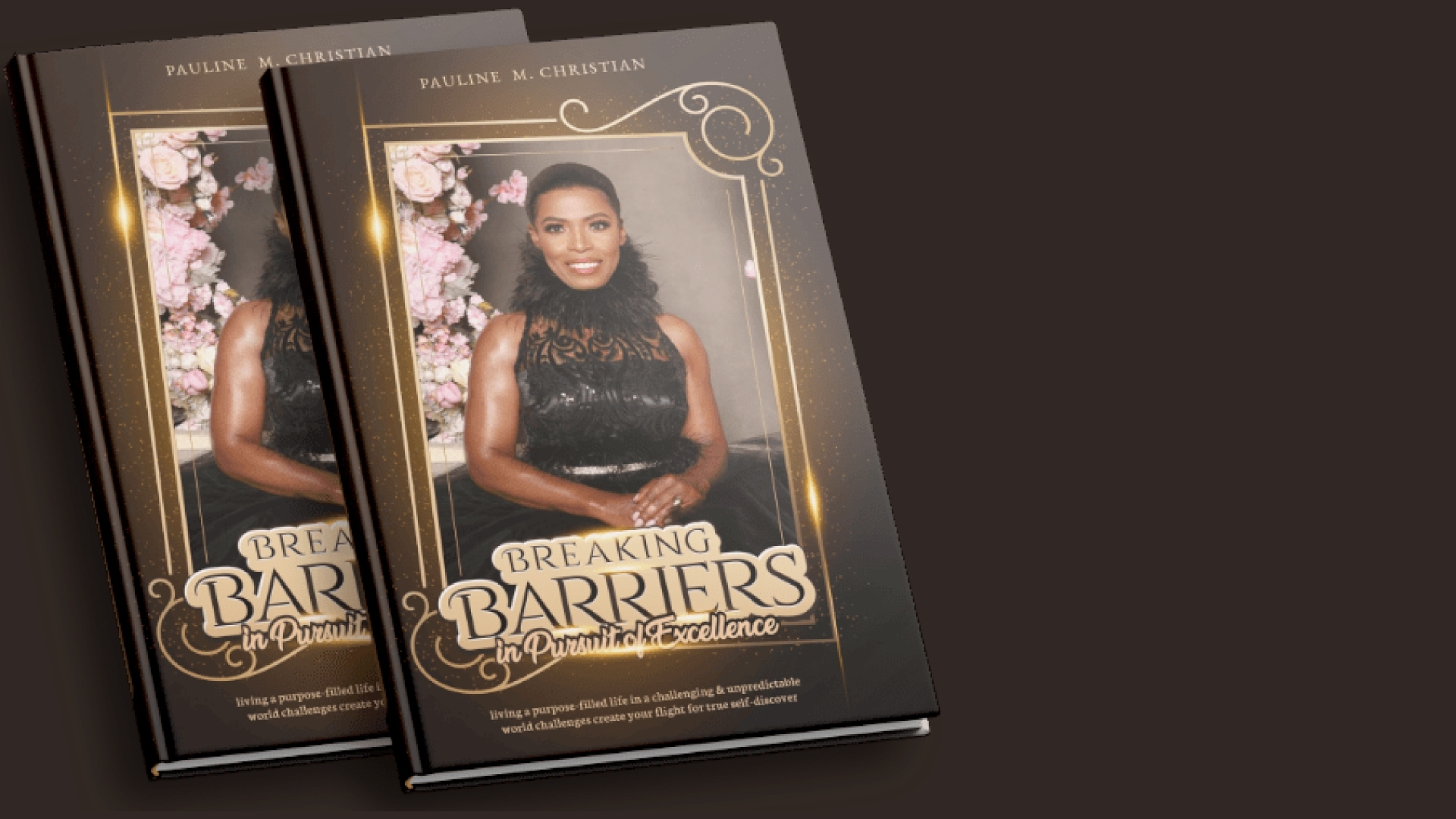BY PAUL JUNOR
The release of Pauline Christian’s book, “Breaking Barriers in Pursuit of Excellence,” on Saturday, January 13th, at the McVey Centre was a fitting culmination of the 25th Annual Martin Luther King celebration. In a day that was truly empowering and entertaining, the launch of her inspirational and motivational book was truly a resounding success.
The release of Pauline’s book is a living testament to the extensive work that she has done both in the: private, corporate world, and the nonprofit sector. She is described as an extraordinary and multi-award winning acclaimed: entrepreneur, community advocate, and philanthropist, who has fervently championed her family business to unparalleled success for almost two decades as CEO/President.
Over thirty dynamic years, she fervently contributed to the transformation of the educational landscape of her community through her yearly endeavors in providing educational opportunities for youth. As founder of Best Lifestyle Residence, a retirement home in the county of Simcoe, Ontario, she established the business based on an inspiring “rehabilitation” approach that aims to assist residents in living their best lifestyles possible. Over the years Best Lifestyles has supported its senior care residents through notable partnerships with respected hospitals and healthcare organizations in Ontario.
Pauline is best known for her Black Business and Professional Association (BBPA) leadership. She served as President from 2010 to 2016. Under her helm, she transformed the BBPA to an exemplary epicenter for youth and entrepreneurship and celebrated 30 years of its work in the Black community.
As an impressive, dynamic, motivational speaker, Pauline imparts wisdom gleaned from vast experiences, motivating people from all walks of life and inspiring youth globally. She provides profound insights into a life marked by perseverance, resilience, and an unwavering commitment to uplifting others. This book serves as a guiding light for self-discovery, filled with inspirations dedicated to turning challenges into vehicles and excellence.
The website describes the book as taking one on a journey that transcends limits and defies expectations. In the pages that follow, you embark on a transformative exploration of resilience, innovation, and the relentless pursuit of greatness. In a world teeming with challenges, this narrative stands as a testament to the extraordinary feats achieved when determination meets opportunity. Prepare to be inspired, challenged, and empowered as readers delve into the stories of those who dared to dream beyond conventional boundaries, shattering barriers in their relentless quest for excellence.
Pauline dedicates the book to her family and spiritual community. She writes, “To my two children, Harolyn and D’Juvayne, and my grandchildren: Yanaijah, Lucia, and Rey, the embodiment of hope and promise. To my loving husband, Harold (Chris), a constant source of support and unwavering love. To my daughter-in-law, Diana (Princess Di), for her grace, strength, and joy she brings.”
She notes further, “This book is also dedicated to the vibrant young souls of the Apple Creek Church, the inspiring students of the Crawford family of schools, and the spirited individuals of Oakwood University. To all the young minds who have traversed through the Black Business and Professional Association Centre of Excellence, your journey inspires.”
She concludes, “Finally, to all seekers of wisdom, understanding, and empowerment, let this dedication resonate. May these pages be a catalyst for breaking down walls of injustice, dismantling microaggressions, and removing all barriers that limit the excellence and greatness within us. With gratitude and hope.”
Anyone interested in learning more about Pauline Christian can check the following:
Website:https://paulinechristian.com
Facebook: @PaulineChristian
Twitter: Pauline Christian
YouTube: MLK Connexus

